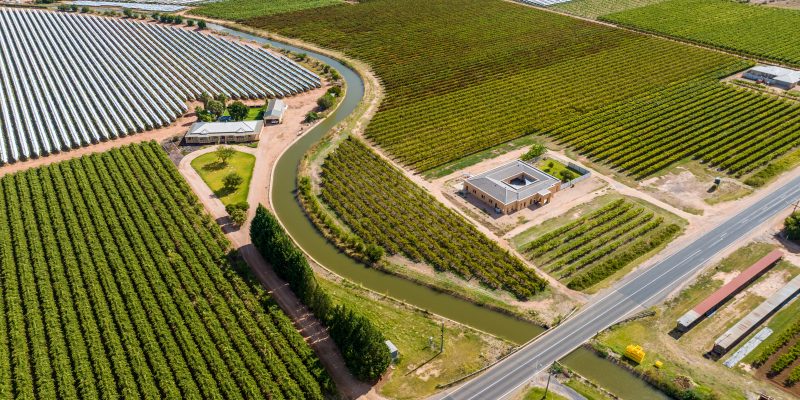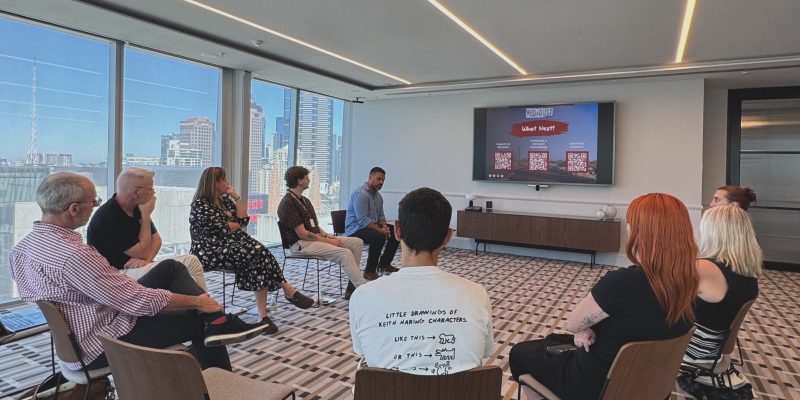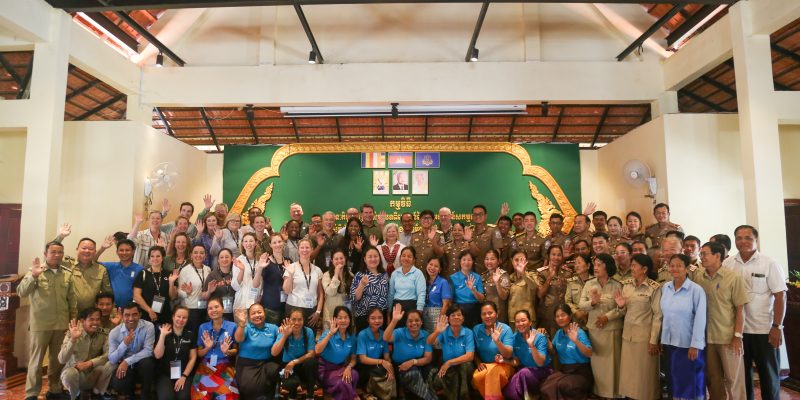For Senior Project Manager Sadia Abdullah, the path to becoming a water engineer was paved with humanitarian experiences and a deep sense of purpose. Growing up in Australia and spending some summer holidays in rural Bangladesh, she witnessed firsthand the contrast in access to clean water. In her parents’ village, a single groundwater hand pump served the entire community—while back home in Australia, water flowed freely from multiple taps. This early exposure to water inequality awakened a lifelong commitment to engineering solutions that ensure everyone, no matter where they live, has access to safe and reliable water.
Local knowledge for a socially conscious mind
Sadia’s passion for water engineering is rooted in more than just technical curiosity: “I saw how access to clean, reliable water improved everyone’s quality of life,” she recalls. “The local pump back home in Bangladesh became a central and celebrated part of the community.” This realisation inspired her to pursue a career where she could use her skills to make a tangible difference in people’s lives. She then took her mission further by dedicating a year to humanitarian and volunteer work, including the Australian Volunteer Program in Vanuatu, which reinforced her conviction to use her skills for good.
During that time, she learnt valuable lessons from the local community and how this knowledge is paramount when moving from technicality to real-life situation; “I spent so much time brushing up on technical standards and journal articles,” she says, “but I realised the best knowledge comes from those around you.” Immersing herself in the local culture, learning the language, and building trust with communities allowed her to co-create solutions that were not only technically sound but culturally appropriate and sustainable for them.
Resilience in the face of disaster
In 2022, Sadia was seconded to Vanuatu’s Department of Water Resources during the volunteering program. Her assignment took a dramatic turn when two Category four cyclones struck the region, devastating infrastructure and leaving many without water, food, or safe shelter. During that time, Sadia witnessed what it meant to rebuild after such a disaster and how persistent group efforts prevail. She joined a team of technicians, engineers, and community volunteers to help assess and rebuild water systems across 300 rural communities on six islands.
“The terrain was unstable, the damage was immense, and the work was physically and emotionally demanding,” she recalls. Yet, it was the resilience and unity of the team that stood out. “Everyone played an important role in restoring safe drinking water. My engineering background helped, but it was the collective effort that made the difference.”
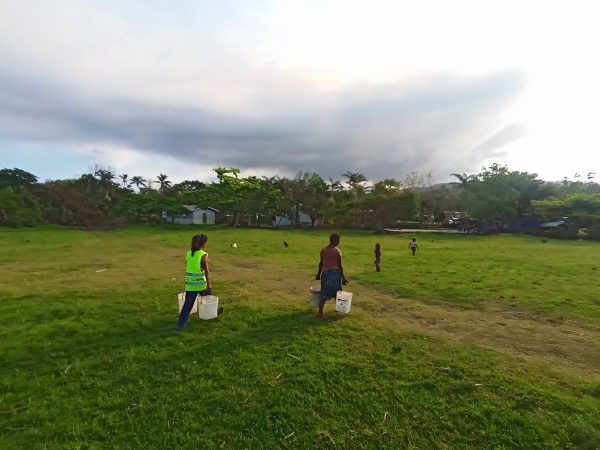
Potable water distribution to communities without water access after the twin cyclones
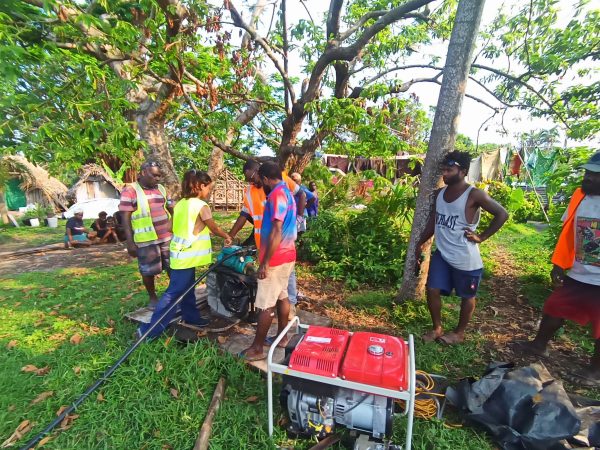
Troubleshooting a pump to provide an alternative access to water for communities
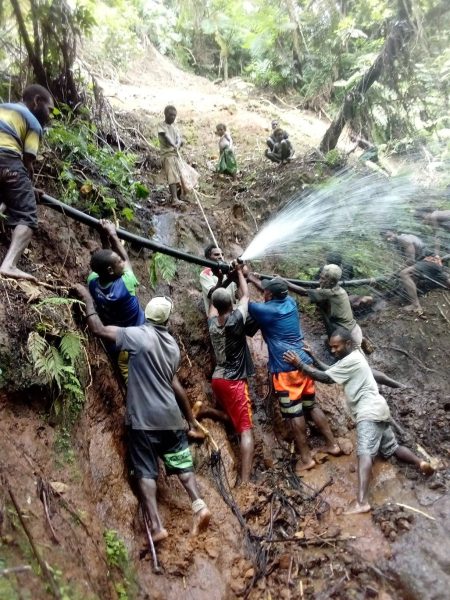
Field response for cyclone recovery, where the WASH team was restoring water systems in difficult terrain and with limited supplies.
When volunteering for disaster response programs, positivity and a solution-driven mindset can be challenged at times. Sadia practised resilience by staying in touch with loved ones and drawing strength from the communities she worked with, which helped her navigate the toughest moments. “The people of Vanuatu have battled natural disasters for generations. But they taught me so much about strength, adaptability, and optimism,” she reflects.
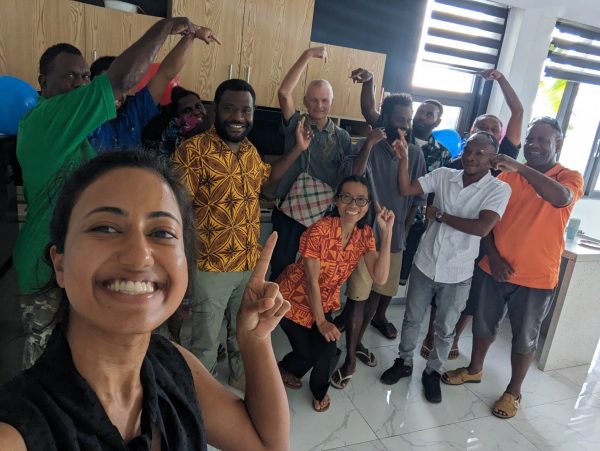
Obligatory selfie with my immediate team at the Department of Water Resources, Vanuatu
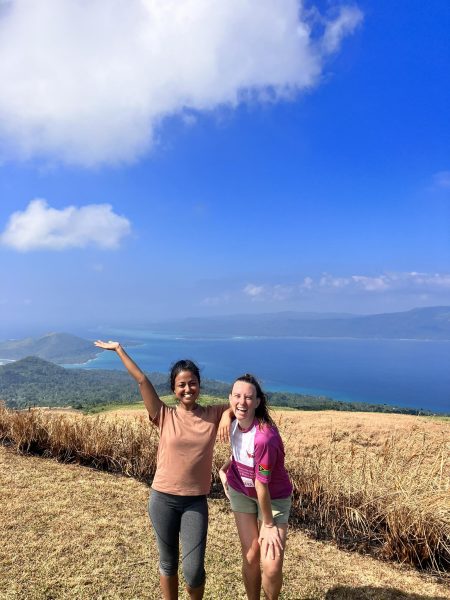
Hiking to the peak of Nguna, a small island in Vanuatu with my housemate and fellow Australian Volunteer
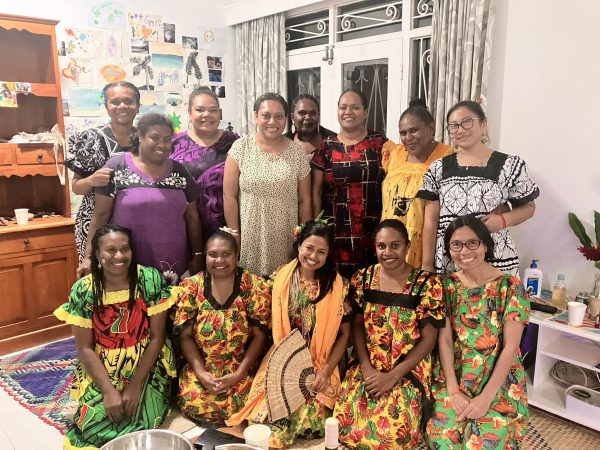
Group photo with my colleagues, who gifted me beautiful island dresses and baskets at my farewell
Moving Forward with purpose
These life-changing experiences deeply reshaped Sadia’s approach to her work. “It reconnected me with a wider purpose,” she says. “It reminded me that engineering is more than just about solving problems—it’s about understanding the people you’re solving them for.”
Another learning from her volunteering experiences that resonated a lot with her was to be open, adaptable and ready to evolve. Indeed, when facing a complex situation such as a disaster, it doesn’t give you more choices to be otherwise.
Today, she brings this mindset into every project, ensuring that infrastructure is technically robust, contextually relevant and community driven. Looking ahead, Sadia wants to continue her journey of growth while staying grounded with her previous experiences. “I want to keep evolving, learning from new sectors and experiences. Stepping outside my comfort zone has been the biggest driver of personal and professional growth—and I would love to continue to do so, no matter what stage in my life”.
